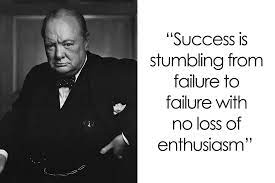This essay isn’t another vignette about meaningful insights gleaned during a marathon. This column is about an ultra-event, a 50-mile slog—not a typo, 50 miles–through the swamp at Fakahatchee. “Where fun goes to die” may be the motto of The University of Chicago, but I would venture to suggest that the University of Chicago never met the Everglades at 82 degrees where every imaginable flora may grow out of control but fun seems unlikely to take root.
I learned a couple things plodding endlessly through the muddy trails. At the Mile 30 aid station when your body says it wants lots of Ginger Ale, do not listen to your body. After six hours of running, your body is not your friend. Your body wants Ginger Ale in the same way that a seven-year-old wants a pony. An equine companion sounds like a good idea, sure, but it’s a small apartment and both the elevator and the stairs present their own set of pony-related complications. Similarly your body does not know what it is talking about. Your body has taken you 30 miles through looming Cyprus trees and alligators as big as surf boards. What kind of friend would do that?
The point being that when the wheels come off moving forward is no longer an option.
Yet our culture is filled with irrelevant quotes about scraping the car along–on cement blocks?–for another 20 miles through the murky trails in the swamp. How exactly would that work?
“Never give in, never give in, never, never, never, never-in nothing, great or small, large or petty” Churchill pointed out in 1941, a sentence repeated on classroom posters. And I’m all about those gritty Brits standing up to fascism, but the rest of the sentence, “never give in except to convictions of honour and good sense” seldom makes it to the bulletin board. I don’t know what goes on in your house, but I like to think that family dinner in my home has more to do with food and conversation, less in common with the amphibious landing at Omaha Beach in June of 1944. “Time, place, occasion” my karate teacher used to say a rough translation of “to everything there is a season.” Indeed “never give up” might not be the right answer in every situation.
“It does not matter how slowly you go as long as you do not stop” said Confucius which is okay by me but there comes a time as the sun goes down and the critters come out in force and although it seemed like the mosquitos were thick enough to block out the sun during the day, when it gets dark and your mind starts to wander a bit 40 miles in to this nonsense you could have trouble remembering if you might be susceptible to malaria. I’m ambivalent about “most of the important things in the world have been accomplished by people who have kept on trying when there seemed to be no hope at all,” but I feel strongly that malaria is uniformly not a good thing.
I know a college student who is studying four and a half hours a day, bless their heart. She is working hard on her second semester of organic chemistry and preparing for the Medical College Admissions Test. The problem is that successful medical students invariably study nine hours a day. If the soon-to-be-doctor studies eight hours on Monday, they “make up for it” by studying ten hours on Tuesday. Effective medical students “take a break” on Sunday, studying “only” five hours so they can get to the market then prepare casseroles for the week ahead. They study while they do their laundry; they study when they eat; they study when they hang out with their friends—typically other medical students studying together.
The four-and-a-half-hours-a-day student is drinking Ginger Ale big time. Which is to say that the wheels have already come off but they don’t know it. They are doing all they can, but sadness is just around the corner. Their parents can be unhelpful. What do you mean you got rejected from every medical school to which you applied? Ouch. If this child could study the requisite nine hours a day, she would. No amount of extrinsic coercion will make a difference.
Churchill also mentioned, if you’re going through hell, keep going. Again, good advice for a different set of circumstances, but I’m going to point out a selection bias. For every successful doctor who agreed with Samuel Beckett, “Ever tried. Ever failed. No matter. Try Again. Fail again. Fail better” there are ten students who “gave it their all,” “tried their best” but didn’t have the horses or the whip or bumped into the fact that there are more applicants than there are spaces in first-year medical schools classes.
Then blame and recriminations take over. They’re all out to get me; admissions is unfair; the system is rigged; the net was too high, the sun was in my eyes. When the truth is that the competition was just too tough or you weren’t quite smart enough. That’s the hardest lesson to internalize. In a race with more than one person, not everyone can finish first.
Cyrano complains vociferously that he doesn’t want friends, is happy making enemies, refused patronage, will go his own way. Le Bret tells him gently, speak loud and proud to the world. But whisper the truth into my ear—she does not love you.
Parents must accept their children for who they are not for some specific and possibly unattainable result. It may be true that winners never quit and quitters never win, but somebody else mentioned that if at first you don’t succeed, try, try again. And then quit, don’t be a darn fool about it. There comes a time to acknowledge that you’ve done what you can and that throwing good money after bad at some point leaves you with no more money. And although there is nothing to buy at the 40-mile aid station, there is sometimes something to be said for accepting that discretion is the better part of valor.
Email me privately if you’re interested to know what happened after Mile 40 in Fakahatchee. I maintain there’s something to be learned from “failures” of all kinds.







